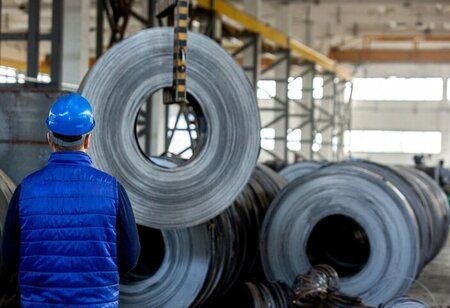
Along with five other members of the World Trade Organization (WTO), India, China, and Russia criticized the European Union on Monday for deciding to prolong its current safeguard measure on certain steel goods past June 30.
They claimed during a WTO conference that the EU's safeguard charge was outside the regulations of the international trade organization. The safeguard duty was implemented after the US placed extra tariffs on a few types of steel imports from the EU in 2018.
Similar levies imposed by the United Kingdom were also criticized by WTO members, notably India.
An unnamed official in Geneva stated, "The EU stated it has evidence that the steel safeguard measure continues to be necessary."
During the meeting, Brazil contended that multilateral or plurilateral cooperation, rather than unilateral protectionist measures, offered the only viable solutions to the global problem of excess steel capacity, while China and Korea said the extension of the measure was ill-founded.
Retaliatory actions
In 2021, India had threatened to retaliate against the safeguard measures by imposing extra import tariffs of 292 million on a few EU items.
In response to the UK's decision to put limits on steel products following its withdrawal from the EU, it then proposed extra customs tariffs of 15% on the entry of 22 products, including cheese, whiskey, and diesel engine components.
UK will determine whether to extend
By June 30, when the safeguard expires, the UK will determine whether to prolong the measure.
"Several members said the UK has been imposing safeguard measures against imports of steel products since it was a member of the EU and continued to do so even after Brexit," according to the source.
The UK was accused by WTO members of not conducting a proper investigation to support the actions that were taken in compliance with WTO regulations.
If a product's domestic industry suffers significant harm, members of the international trade organization are able to temporarily prohibit imports of that product by the imposition of increased tariffs or other measures.
The restrictions should not be in place for more than four years, and they affect all imports, not just those from a certain nation.
Developing nations, that produce less than 3% of global exports, are not subject to these restrictions.

